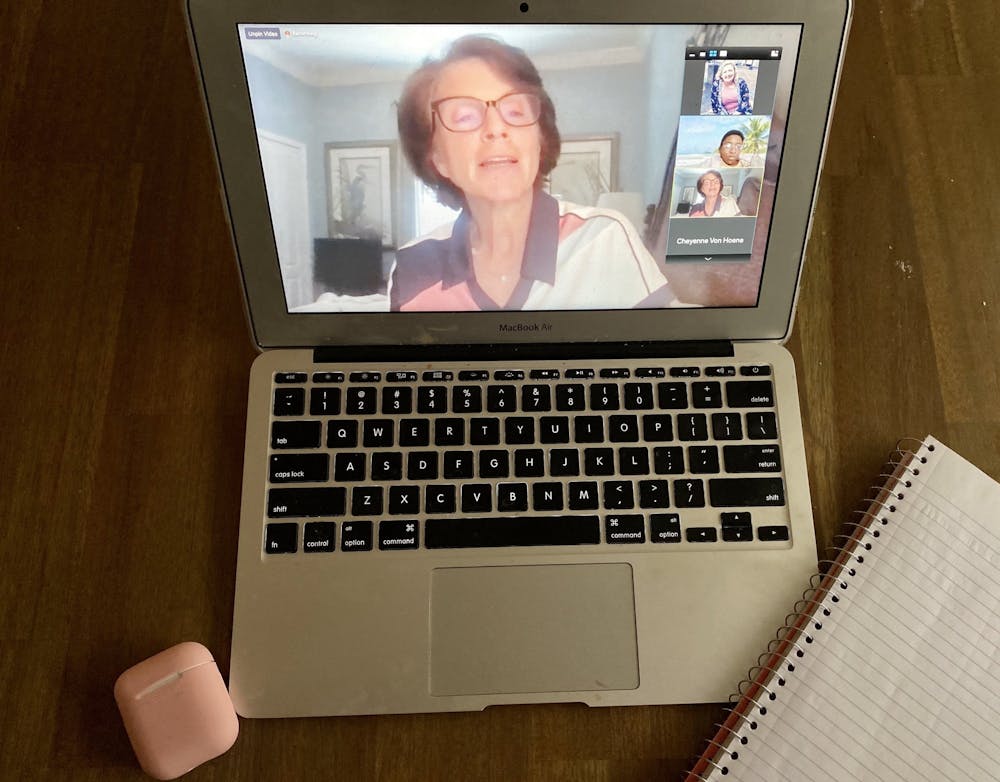An apocalyptic, orange glow currently presides over the West — the result of catastrophic wildfires enraged by climate change. An unprecedented, world-wide pandemic is plaguing the United States. Protesters are taking to the streets as a result of exacerbated, horrifically violent police brutality against the Black community and other communities of color. The necessity of an empathetic, perceptive conversation is unparalleled.
A liberal arts education combines central academic disciplines in three broad areas: sciences, arts and humanities. These shape a member of society to be able to navigate the complexities of the current issues plaguing the world. The College of Arts and Sciences at IU provides the broadness of study encapsulated in a liberal arts education, granting appreciation and understanding of historical success of a society, in addition to the basis of future insight.
In a time of disproportionate adversity faced by minority communities, it is beneficial to understand the calamities they face. The versatility, in addition to hostility, toward online education and the burdens placed upon institutions in regard to online education disincentivize the importance of intellectual diversity achieved from a liberal arts education. IU must be at the forefront of valuing an education founded in liberal arts by providing coursework in regard to the current, complex climate and ensuring in-person discussion sections to propagate engaged learning full of varied viewpoints.
As universities commence online classes, they are met with the challenge to attain the needs of both the traditional and nontraditional student. Through no fault of their own, such as students with various time zone changes or displaced workers, many students are continuing their education through a nontraditional path with asynchronous coursework and alternative degrees.
Universities are adapting to the dichotomy of student situations by offering shorter-term, minute certificates, such as Depaul University’s micro-credential programs in leading innovation during uncertainty and anti-racist curriculum. Reformulating degrees means reformulating values, a dangerous diminishment of a liberal arts foundation.
IU is offering various micro-credential courses to accommodate for, or counterbalance, the perils of online education in the wake of the COVID-19 pandemic. Many of these courses contain topics to create a conscious conversant in today’s environment, but students have no incentive to enroll. The College of Arts and Sciences said in a Sept. 8 email these courses will not be counted toward a student’s degree, major or minor. Vital information provided by these courses will go unnoticed since IU does not permit students to benefit.
Additionally, students are tired of Zoom. Attributes of everyday life such as distractions, physical tiredness and multiple meetings per day are contributing to the feeling of “Zoom fatigue,” a form of exhaustion propagated by extended online exposure. Students are zoned out and not able to navigate the complexities of the conversation at full. In order to accommodate for this, professors may prioritize their teaching and shorten their lectures by using prerecorded lectures or discussion posts. However, these alternatives prohibit diverse discussion within a topic by diminishing the different perspectives and identities students could bring to the conversation.
One can declare a major in biological sciences while additionally declaring a major or minor in gender studies or Jewish studies. One can declare a major in business marketing in addition to a minor in psychology and German. Students are offered the tools to create a diverse set of coursework, but the incentives are lessening in the pandemic. The nontraditional student, seeking a shortened, reconstructed degree cannot reap the benefits of intellectual conversation and diverse coursework.
There are courses regarding climate change and climate justice, which permit students to understand the exacerbation of the wildfires. There are courses regarding the Black Lives Matter movement in addition to various courses regarding Black history and Black literature. Economics, international studies and science courses can all aid in one's understanding of the pandemic and its effects on the world. The multifaceted aspects of current affairs create an imperative need for a liberal arts foundation.
Students, and educators, must be cognizant of the current climate and the liberated understanding developed with a liberal arts education. Universities must provide students with courses regarding the contemporary atmosphere with an incentive to take them and where their voices can be heard. IU cannot allow COVID-19 to disincentivize the need for mindful, empathetic conversation.
Russ Hensley (he/him) is a sophomore studying mathematics, political science and international law. He is a curator for TEDxIndianaUniversity, a member of IU Student Government and a member of the Hutton Honors College.






